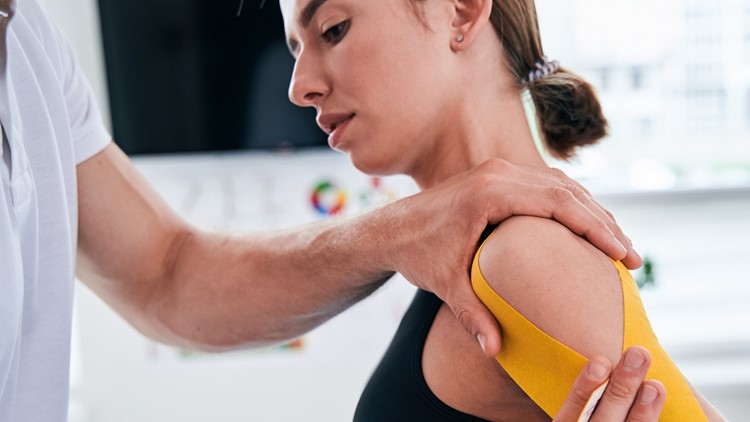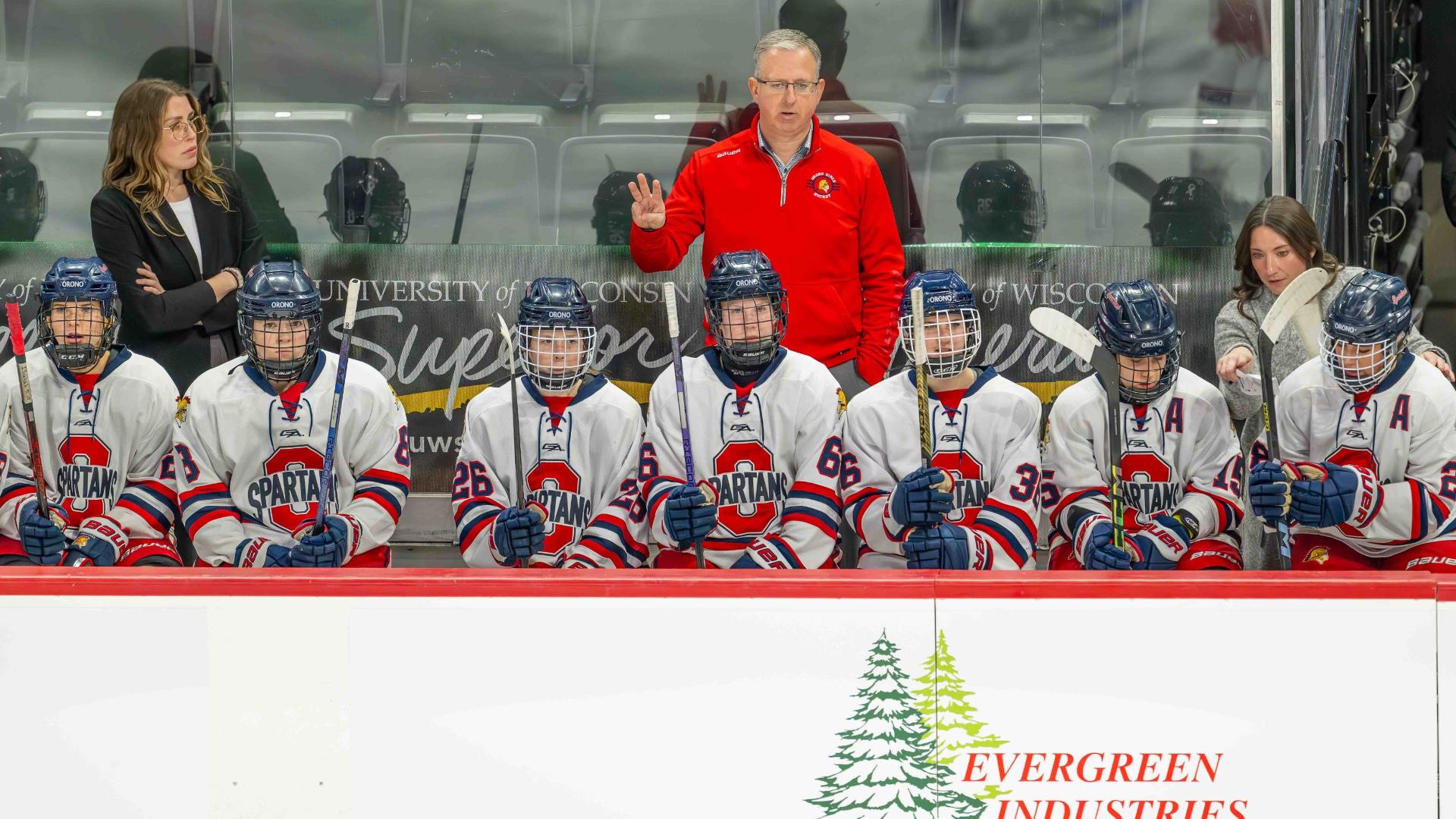BLOOMINGTON, Minn. — SportsLife is a recurring blog examining issues that impact young athletes, their families, officials and the greater community. Topics come from YOU: email them to news@kare11.com with SportsLife - Dana Thiede in the topic line.
It is not overstating things to say that women's athletics have never seen a moment like this, with more individual stars, record ratings and growing popularity with fans of all ages and genders.
The University of Iowa's Caitlin Clark is EVERYWHERE, arguably the most popular athlete of any gender in any sport. The NCAA championship game between her Hawkeyes and Dawn Staley's South Carolina Gamecocks was viewed by nearly 19 million people, making it the most-viewed women's college basketball game on record and the most-watched college basketball game of any kind on ESPN platforms. She now moves on to the WNBA, where Clark was drafted number one overall by the Indiana Fever and takes her legions of fans to another level.
Women's hockey is also on a rocket-fueled rise after competing factions decided to build a bridge that led to the Professional Women's Hockey League (PWHL). The Minnesota franchise is extremely popular, drawing a then-record 13,316 fans to witness a 3-0 shutout against Montreal and averaging nearly 8,000 for its home games at Xcel Energy Center. Homegrown skaters like Taylor Heise and Grace Zumwinkle are becoming breakout stars both on the ice and in the media, with young girls looking to them for inspiration.
The dream of making sports a career - one with a living wage and benefits - suddenly seems within reach.
"It’s SO important," said Dr. Heather Bergeson, an orthopedic and sports medicine specialist with TRIA. "We used to say that you can’t be what you can’t see. Now, you can be what you CAN see."
Dr. Bergeson treats athletes of all ages, sizes and genders. While the sports they play are basically the same - and this may sound obvious - women and men have unique differences in the way they are built. The problem is, the medical community has long treated them the same.
"So there are anatomic and physiologic differences between men and women, different skeletal mass and bone laxity, ligament laxity, hormone levels, of course, women tend to have more problems with shoulder instability, shoulder dislocations, ACL tears (an estimated 8 times more common in women than men), concussions, and so the reality is that we need to try to prevent those differently and take care of them differently," explained Dr. Bergeson.
Bergeson is Co-Director of TRIA Women's Sports Medicine, advertised as one of the few programs of its kind in the entire Midwest. The goal is to offer specialized, targeted care for active women, from grade-school athletes growing into elite competitors to moms trying to get back into running after having kids, or those entering into post-menopause. The program partners with a physical therapist, a nutritionist and other specialists who are uniquely focused on what women need.
"As we go through the transitions of life, as women our bodies are changing in amazing ways, through puberty but also those touchpoints of menopause, we start to lose muscle strength, bone mineral density, all sorts of problems, being more prone to stress injuries, falls, whatever orthopedic issues it might be," Dr. Bergeson says. "And so it’s really important that we are able to support women in that age group so they can continue to be active and healthy throughout their lifespan."
Bergeson breaks down the phases in the life of a female athlete like this.
Youth: Sports need just to be about fun, fitness and friends. "The fundamentals, trying to play the sport of the season and not specialize early, and not overlap too many sports at the same time." The American Academy of Pediatrics says specializing or playing just one sport year-round can lead to an increase in overuse injuries, overtraining and burnout.
Teen, college years: An athlete starts to specialize (which can lead to repetitive stress injuries) but it’s also OK to play sports that are good for your body. She says puberty can be a tough time and a true equalizer. "Puberty changes everything, sometimes there are athletes who were the best on the team, super fast… and then everybody goes through puberty at different times, but all of a sudden they’re not as fast as everybody else. So there’s all these different hormonal changes that are occurring, estrogen, progesterone, testosterone that are changing our body’s abilities."
Adulthood: Pregnancy and breastfeeding and all of that can play quite a role in women's bodies, Bergeson says. "Amazing in ways but also disruptive in a lot of ways. We know that continuing to be active through all of that is helpful and protective... in the past, people used to say 'Women shouldn’t be exercising at all cause our uterus is going to fall out or something.' (she laughs) so we’ve come a long way from there."
Peri-post menopause: The period with the most challenges, one that is now getting the attention it deserves. "I think a lot of us went through that phase without thinking twice about it. Kind of 'What the hell is happening here…' But there’s more and more organizations, podcasts, books and resources out there… like the opportunity for hormone replacement therapy, which for some women is really a lifesaver." She says activity - not necessarily organized sports or workouts, but walking, jumping rope or even hoola hooping - is essential in this phase. Maintaining core strength and balance can prevent falls, which are a leading cause of death as we age.
Bergeson adds that whatever phase of life a female athlete is in, it's essential to provide adequate rest and recovery and focus on mental health, not just physical health.
Until recently, most of the literature on injury treatment and prevention was centered around males, so programs like TRIA Women's Sports Medicine are also playing a research role. Bergeson shares that among other things, they are partnering with a scientist and recruiting patients to learn more about bone health and gauging the impact of hormone levels, menstrual cycles and other factors on bone stress injuries.
Bergeson says TRIA Women's Sports Medicine has grown steadily since being founded by her colleague Dr. Heather Chichanowski in 2018. She now sees about four patients each day at TRIA's Bloomington location who are taking part in the program, conducts outreach by providing medical care at 5 and 10K races that celebrate female runners, and speak at events like the Female Athlete Summit, which took place as the Twin Cities hosted the Big Ten Women's Basketball Tournament. Healthcare professionals from around the world gathered for breakout sessions on topics ranging from sports injuries to GenX body image issues and lack of media support for women's sports.
"It was an amazing day, it was so inspiring," Bergeson recalls. "Part of the mission of our TRIA women’s sports program is to provide the highest standard of care to women of all ages, and body types, and part of that is to engage in our community. So we connected with Gopher Athletics and created the summit, the idea is that we were going to... put our heads together and do a day of talks related to girls' and women’s sports throughout their lifespan."
Bergeson believes that while women's sports have always been good - and galvanizing - for those who take part, we are clearly at another level with the "Clark Effect" playing a role in elevating female athletes and the space they occupy in the public consciousness.
"It feels a little different," she opines.
That, in turn, could fuel more awareness of giving women in sports the care and support they've earned.
WATCH MORE ON KARE 11+
Download the free KARE 11+ app for Roku, Fire TV, Apple TV and other smart TV platforms to watch more from KARE 11 anytime! The KARE 11+ app includes live streams of all of KARE 11's newscasts. You'll also find on-demand replays of newscasts; the latest from KARE 11 Investigates, Breaking the News and the Land of 10,000 Stories; exclusive programs like Verify and HeartThreads; and Minnesota sports talk from our partners at Locked On Minnesota.
- Add KARE 11+ on Roku here or by searching for KARE 11 in the Roku Channel Store.
- Add KARE 11+ on Fire TV here or by searching for KARE 11 in the Amazon App Store.
- Learn more about the KARE 11+ app for Apple TV in the Apple App Store.
- Learn more about KARE 11+ here.
Watch more SportsLife:
Watch all of the latest interviews from the ongoing digital blog on our YouTube Playlist:



